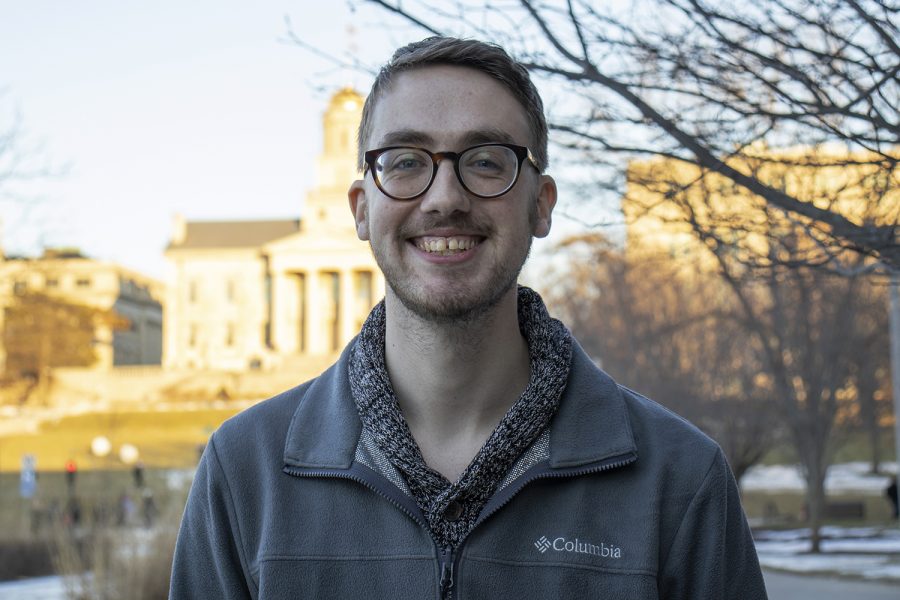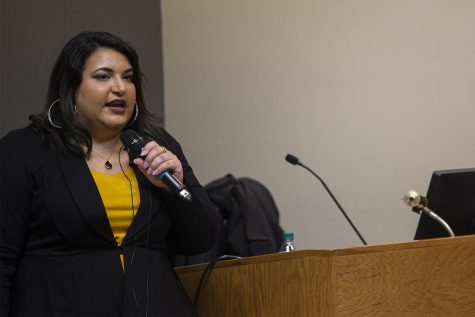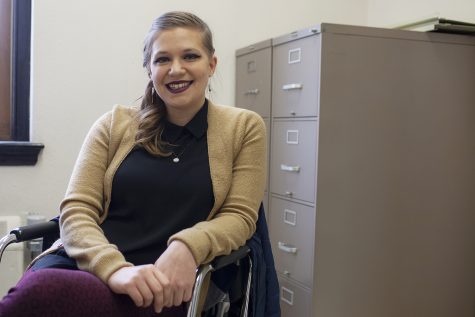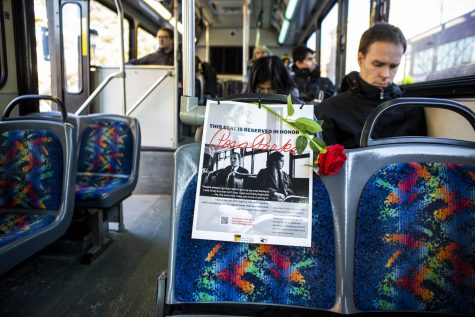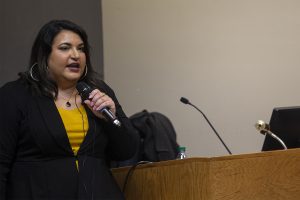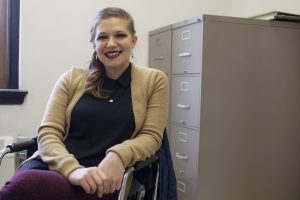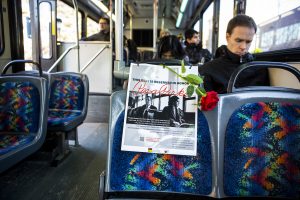UI Sustainability Office opens online sustainable projects database for students
University of Iowa Office of Sustainability and the Environment created an online database of projects that students can pursue to improve sustainability on campus and within the community.
Hannah Kinson for The Daily Iowa
Hunter Stascak, an intern at the Office of Sustainability and the Environment, poses for a picture on Thursday, Feb. 6, 2020. Many of the projects that interns work on are focused on improving on-campus sustainability.
February 10, 2020
The University of Iowa Office of Sustainability and the Environment recently created an online database of on-and-off-campus sustainability projects to help target areas the university community can improve its environmental efforts.
UI Office of Sustainability Director Stratis Giannakouros said the database was made public by the end of January. It began development over the summer, and was spearheaded by Project Intern Hunter Staszak, who Giannakouros said volunteered during a brainstorming session.
“[We were looking at] what were the things we could work on, what were our needs, and someone raised this issue of when students come to us and [say], ‘I have a project I would like to do,’ or ‘I have to do [a project] for a course,’ or ‘How do I get engaged,’ ” Giannakouros said. “And even though we know, generally, what’s going on on campus, we’ve never really put it out there in an explicit way where it’s available to the campus community. So [now] we can point them to this.”
Staszak said the database’s goal was to focus on projects that not only benefit campus and the community but also give UI students from all fields an opportunity to pitch in.
“I wanted to solve some sort of problem out there for students who might want to get involved in the sustainability field, but don’t necessarily see how their discipline fits into it,” Staszak said. “So, one of the things about the student-project template that I tried to make sure of was that pretty much every discipline was covered, and even if it wasn’t directly covered it could scale any one of the individual students’ interests.”
Staszak said he worked over the course of the fall 2019 semester and all the projects on the database were either found by Staszak, brainstormed in various sessions with the office, or volunteered by others in the community.
“We had huge sheets of paper, where every time we got something from someone, [like if] we got an email from someone or we thought of something that would be useful to have, we just kept this really long running list of all of these different projects across campus,” said UI Office of Sustainability Program Manager Blake Rupe. “Now that they’re out there, we’ll get a better idea of if it was successful or if it was useful, and hopefully we can start curating and coming up with more.”
RELATED: UI student intern works towards more sustainable practices at UIHC
Another reason the database was created was due to the high volume of sustainability-based projects that UI professors give to their students, Rupe said. Those students would either email or go to the office to ask staff for ideas, she said.
The Office of Sustainability hopes that the database will continue to evolve and expand beyond campus or immediate projects overtime, Giannakouros said. They also aim to broaden its reach by encouraging students to look outside of the UI and pursue projects that the global community needs to address, he said.
“We can think about broader community or broader sustainability problems to solve what might be elsewhere in the world or region,” Giannakouros said. “We just started with the campus, but it’s an ideas database for people thinking or saying, ‘I want to do something but I’m not quite sure what to do.’ This could stimulate or get creativity flowing. Hopefully, it’s a launching off point for students’ ideas.”



